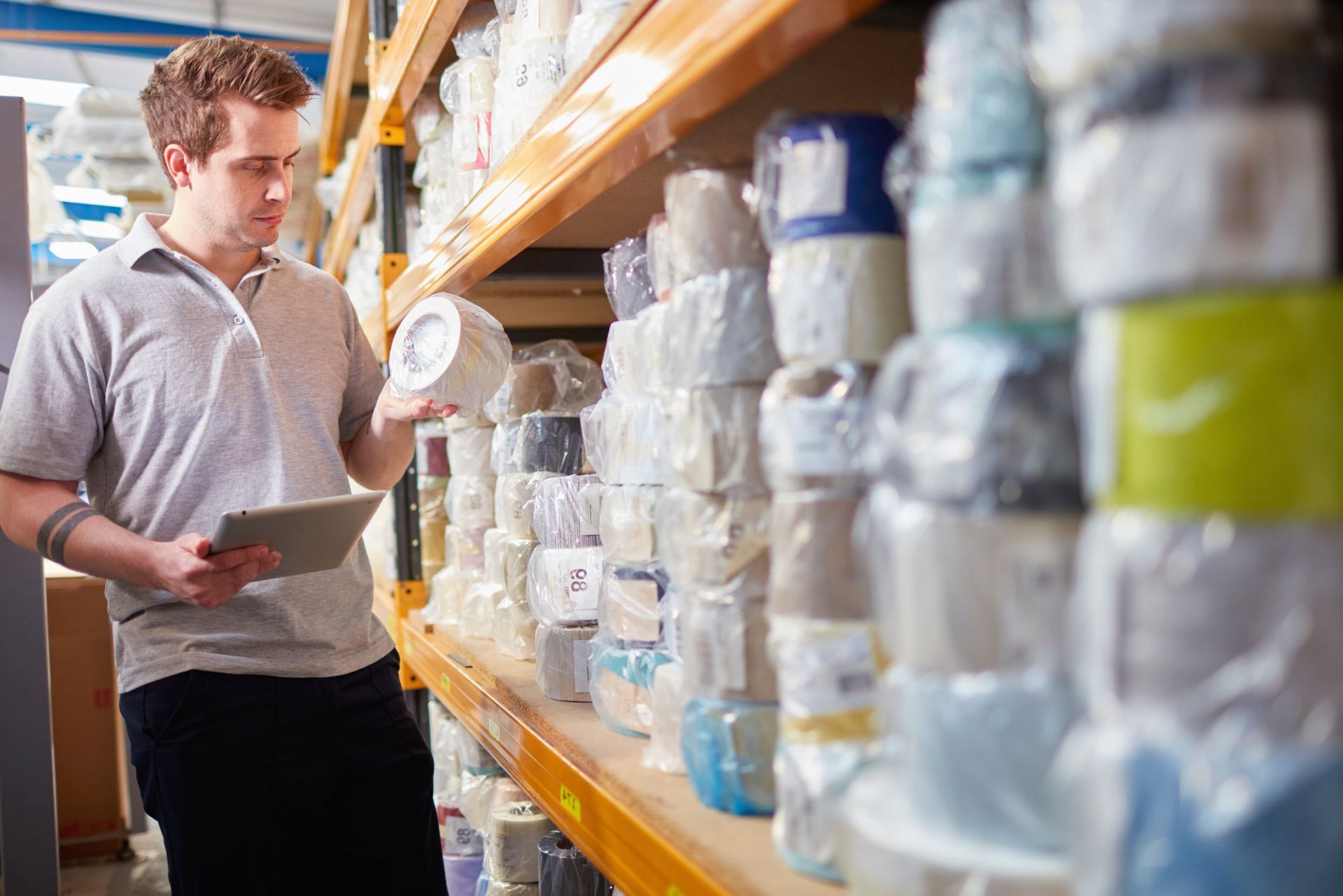Arizona Product Liability Insurance
See How We're Different:
or Call Us:(480) 526-3222

Most Common Business Policies
Index
What Is Product Liability Insurance and Why Is It Important?
Growth of Product Liability Insurance in Arizona
Legal Requirements and Reporting in Arizona
Understanding Coverage: What Does Product Liability Insurance Protect?
Industry-Specific Trends: Food and Beverage Sector
Contact Us
For businesses operating in Arizona, understanding product liability insurance is essential. Whether you manufacture, distribute, or sell products, the risks associated with product defects or safety issues can lead to costly lawsuits and damage to your reputation. Product liability insurance offers protection against these risks, covering claims related to bodily injury or property damage caused by your products.
In Arizona, this insurance market has seen significant growth over recent years, reflecting the increasing awareness and need for coverage in a dynamic business environment. This article dives deep into everything you need to know about product liability insurance in Arizona, including market trends, legal requirements, coverage details, and industry insights to help you make informed decisions.
For a detailed look at the insurance landscape in Arizona, the
Arizona Insurance Market Trends by Line of Business provides valuable data on premium growth and market developments.
What Is Product Liability Insurance and Why Is It Important?
Product liability insurance is designed to protect businesses from financial loss in the event their products cause harm or damage. This coverage extends to claims arising from manufacturing defects, design flaws, or inadequate warnings and instructions. Essentially, it safeguards manufacturers, distributors, and retailers against lawsuits brought by consumers or third parties.
According to experts at the Malone Financial Group, product liability insurance covers several types of claims, including those related to manufacturing defects, design defects, and failure to provide adequate warnings or instructions. This broad scope makes it indispensable for companies involved in any stage of product creation or sales.
Without this insurance, businesses risk bearing the full cost of legal defense, settlements, or judgments, which can be financially devastating. Given the complexity and unpredictability of product liability claims, having robust insurance coverage is a prudent risk management strategy.
Moreover, the importance of product liability insurance extends beyond mere financial protection; it also plays a crucial role in maintaining a company's reputation. In today’s highly connected world, a single product recall or lawsuit can lead to significant public scrutiny and loss of consumer trust. Businesses that are proactive about securing product liability insurance demonstrate a commitment to quality and consumer safety, which can enhance their brand image and foster customer loyalty.
Additionally, the landscape of product liability is continuously evolving, especially with the rise of new technologies and materials. For instance, products that incorporate artificial intelligence or advanced materials may face unique liability challenges that traditional insurance policies might not adequately cover. Therefore, it is vital for businesses to stay informed about industry trends and work closely with insurance professionals to ensure their coverage adapts to the changing risks associated with their products.

Growth of Product Liability Insurance in Arizona
The product liability insurance market in Arizona has experienced remarkable growth over the past decade. Direct premiums written for product liability insurance surged from $36.7 million in 2015 to over $80.4 million in 2022, marking a 119% increase. This growth underscores the rising demand for coverage as businesses become more aware of the risks associated with their products.
This trend aligns with the broader expansion of Arizona’s insurance industry. The Property, Casualty, and Direct Insurance sector in the state is projected to reach $19.1 billion by 2025, supporting over 24,000 employees across more than 500 establishments. The growth of product liability insurance within this sector highlights its increasing importance to Arizona’s economy and business community.
Such data, sourced from the IBISWorld report on Arizona’s insurance market, reflects how product liability insurance is becoming a critical component of business risk management in the state. As companies innovate and introduce new products, the complexities of liability increase, prompting businesses to seek out comprehensive insurance solutions. This is particularly relevant in industries such as manufacturing, technology, and food services, where the potential for consumer claims can lead to significant financial repercussions.
Moreover, the rise in e-commerce and direct-to-consumer sales has further amplified the need for product liability insurance. With more businesses selling products online, the geographical reach of potential claims has expanded, making it crucial for Arizona-based companies to protect themselves against lawsuits that could arise from anywhere in the country. This shift not only emphasizes the necessity of robust insurance coverage but also highlights the evolving landscape of consumer protection laws, which are becoming increasingly stringent and complex. As a result, businesses are not only investing in insurance but also in risk management strategies to mitigate their exposure to potential liabilities.
Legal Requirements and Reporting in Arizona
Arizona has taken steps to enhance transparency and regulatory oversight in the product liability insurance space. Under the Arizona Revised Statutes § 20-223.01 (2024), insurers providing product liability coverage are required to file annual reports detailing claims made against their insureds during the preceding calendar year.
This legislative requirement helps regulators monitor claim trends and ensures that insurers maintain adequate reserves to cover potential liabilities. For businesses, it means working with insurers who are compliant with state regulations and committed to maintaining industry standards. Additionally, these reports serve as a valuable resource for businesses seeking to understand the landscape of product liability claims within the state, allowing them to make informed decisions regarding their insurance needs and risk management strategies.
Moreover, the annual reporting process not only fosters accountability among insurers but also empowers consumers by providing them with insights into the performance and reliability of different insurance providers. As a result, businesses can better assess which insurers are more adept at handling claims efficiently and effectively, thereby reducing the potential financial impact of product liability issues. This level of transparency ultimately contributes to a healthier marketplace where both businesses and consumers can thrive.
For more details on this statute, visit the official
Arizona Revised Statutes website.
Understanding Coverage: What Does Product Liability Insurance Protect?
Product liability insurance covers a range of claims that may arise from the products a company manufactures or sells. This includes bodily injury or property damage caused by defects or malfunctions. Coverage typically extends to three main types of product liability claims:
- Manufacturing Defects: Flaws that occur during the production process, making a product unsafe.
- Design Defects: Inherent problems in the product design that make it dangerous even if manufactured correctly.
- Failure to Warn: Insufficient instructions or warnings about the product’s proper use or potential risks.
L & A Insurance Services emphasizes that product liability insurance protects manufacturers and sellers against lawsuits arising from these issues, covering liability for bodily injury or property damage a third party might sustain due to a product defect or malfunction. This protection is vital for maintaining business continuity and financial stability.
Understanding these coverage areas helps businesses tailor their insurance policies to their specific risks and operational realities. It also highlights the importance of quality control and clear communication with consumers to minimize potential claims. For instance, companies can implement rigorous testing protocols and establish feedback mechanisms to identify potential risks before products reach the market. This proactive approach not only reduces liability exposure but also enhances the overall reputation of the brand in the eyes of consumers.
Moreover, the implications of product liability insurance extend beyond mere financial protection. In an increasingly litigious society, having comprehensive coverage can serve as a competitive advantage, reassuring customers that the company stands behind its products. This assurance can foster customer loyalty and trust, which are invaluable assets in any industry. As businesses navigate the complexities of product development and sales, a thorough understanding of product liability insurance becomes an essential component of their risk management strategy.
Learn more about these coverage details at
L & A Insurance Services.

Industry-Specific Trends: Food and Beverage Sector
The food and beverage industry in Arizona has witnessed a notable increase in product liability insurance premiums, driven largely by contamination and safety incidents. Premiums in this sector have grown approximately 15% year-over-year into 2025, reflecting heightened risks and regulatory scrutiny.
Given the potential for widespread harm from contaminated or unsafe food products, businesses in this industry must prioritize product liability coverage to protect against costly claims. This trend is part of a broader global increase in product liability claims, with average claim payouts around $7 million at trial worldwide in 2025.
These statistics come from the Liability Insurance Industry Statistics 2025, which provide valuable insights into how industry-specific risks impact insurance costs and coverage needs.
Moreover, the rise in premiums is not solely attributed to the frequency of claims but also to the evolving nature of consumer expectations regarding food safety. With the advent of social media and instant communication, any incident involving food contamination can quickly escalate, leading to significant reputational damage for brands. Companies are now investing more in quality assurance and risk management practices, including rigorous testing and traceability systems, to mitigate these risks and reassure consumers about the safety of their products.
Additionally, regulatory bodies are becoming increasingly vigilant, implementing stricter guidelines and standards that food and beverage companies must adhere to. The Food and Drug Administration (FDA) and other local agencies are actively monitoring compliance, and failure to meet these regulations can result in hefty fines and legal repercussions. As a result, businesses are not only facing higher insurance costs but are also compelled to enhance their operational protocols to maintain compliance and safeguard their market position.
Global and National Context of Product Liability Insurance
While Arizona’s product liability insurance market is growing rapidly, it is also part of a larger national and global landscape. The United States remains the largest market for product liability insurance, accounting for approximately 45% of global premiums in 2025.
This dominant market share highlights the U.S.'s extensive legal environment and litigious culture, which drive demand for comprehensive product liability coverage. Businesses in Arizona benefit from being part of this robust market, but they also face challenges related to rising premiums and complex claim dynamics. The interplay between state and federal regulations can create a convoluted landscape for companies trying to navigate their responsibilities and liabilities, making it essential for them to stay informed about legislative changes that could impact their insurance needs.
Understanding this broader context helps Arizona businesses benchmark their insurance strategies and anticipate future trends in coverage and risk management. For instance, as consumer awareness around product safety continues to rise, companies may find themselves under increased scrutiny, necessitating more stringent quality control measures and transparent communication with consumers. This shift not only affects how businesses operate but also influences the types of coverage they seek, as insurers adapt to evolving risk profiles and consumer expectations.
Moreover, the global aspect of product liability insurance cannot be overlooked. As companies expand their reach into international markets, they must consider the varying regulations and cultural attitudes towards liability in different countries. This complexity can lead to additional layers of risk, requiring businesses to adopt a more nuanced approach to their insurance policies. For those looking to understand the U.S. market share in greater detail, more information can be found at Liability Insurance Industry Statistics 2025.
Key Takeaways for Arizona Businesses
For companies operating in Arizona, product liability insurance is not just a regulatory formality but a critical safeguard against potentially devastating financial losses. The significant growth in premiums and claims reporting requirements reflect an evolving risk landscape that demands proactive management. As the state continues to attract a diverse range of industries, from technology to agriculture, the complexities surrounding product liability are becoming increasingly pronounced. Businesses must be prepared to navigate these complexities, as the legal environment can shift rapidly, influenced by new legislation or landmark court rulings.
Businesses should work closely with knowledgeable insurance providers to ensure their policies adequately cover the specific risks associated with their products and industries. This collaboration can lead to tailored solutions that not only meet legal obligations but also enhance operational efficiency. Staying informed about legal requirements, market trends, and industry-specific challenges will help companies maintain resilience and protect their reputations. For instance, companies in the food and beverage sector must be particularly vigilant about safety standards and recall procedures, as even minor oversights can lead to significant liabilities and loss of consumer trust.
Ultimately, investing in comprehensive product liability insurance is an investment in the long-term success and security of any business dealing with products in Arizona. Furthermore, businesses should consider implementing robust risk management strategies that include regular training for employees, thorough product testing, and clear communication with customers regarding product use and safety. By fostering a culture of safety and accountability, companies can not only mitigate risks but also enhance their brand image, positioning themselves as trustworthy leaders in their respective markets.
